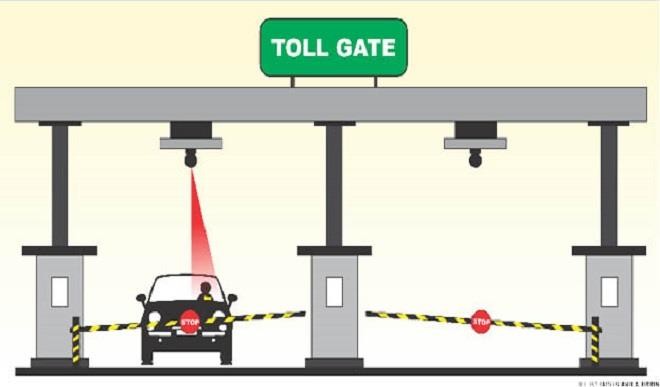The return of tollgates and the Korean model
After more than a decade since the federal government’s decision to dismantle tollgates on the federal highways across the country, Nigeria may soon return to the era because of the urgent need to augment allocation for road maintenance and repairs. This was disclosed penultimate week in Abuja by the Minister of Power, Works and Housing, […]


After more than a decade since the federal government’s decision to dismantle tollgates on the federal highways across the country, Nigeria may soon return to the era because of the urgent need to augment allocation for road maintenance and repairs. This was disclosed penultimate week in Abuja by the Minister of Power, Works and Housing, Babatunde Fashola during a press briefing where he unveiled his ministry’s agenda.
He said, “If we ask everyone to pay a little as our commonwealth and hold those in charge to account, and we use technology…We don’t pay cash, we pay by token or by ticket and money is accountable and will go the right place.”
Fashola had squarely addressed the very reason that led Olusegun Obasanjo administration to dismantle all the tollgates on the federal highways: corruption, lack of accountability and the inability to repair bad roads despite the existence of the gates.
To juxtapose the presence of tollgates with what obtains in developed countries, the minister’s assertion seemed to be the panacea, if the e-governance is to be fully implemented in the process.
But to realise Fashola’s dream, as he rightly revealed, the need to adopt technology, or better still, e-governance becomes imperative in the effort to return the tollgates.
But that could be a gargantuan work, as Nigeria is yet to fully adjust and deploy computerised revenue collection and procurement policy in governmental affairs and offices. Actually, there had been effort towards that direction by the immediate government when it liaised with the Korea International Development Agency (KOICA) in coming up with a road map for Nigeria’s transition to e-governance that was designed and submitted to the minister by Korea’s ambassador to Nigeria, Noh Kyuiduk.
The master plan, according to KOICA had gulped $2 billion, with the agency going a step further by sponsoring hundreds of government officials on postgraduate and other training in the area in Korea.
Incidentally, when in August, KOICA took some government officials, including the Daily Trust reporter to the Republic of Korea for a development strategy training, what struck most of us was the commonplace tollgates.
All the gates are managed through the institutionalised e-governance in the country such that money realised goes directly to the government coffers and evaders easily traced and fined accordingly. According to Professor Hong Sung Gul of Kookmin University, Korea used to have a pervasive corruption across all levels in the past. But no sooner than government adopted e-governance, had all corruption disappeared mysteriously.
Tollgates are commonplace in Korea such that one has to pass through not only when driving on highway but even in between districts. There is a bigger tollgate when entering a city, but smaller ones exist at the entrance of each district and fees are paid.
On our fifth day in Seoul, the team was taken to the countryside on a six-hour road journey that cut across three provinces. By the time we arrived at our base in the industrial city of Ulsan late evening, we had crossed and paid fees at more than 10 tollgates.
KOICA representatives who led the journey, Mrs July Lee informed us that the Korean government is generating a lot of money through the gate fees and that anybody must pay before passing.
“You can see we did not stop at the tollgate,” Mrs Lee said upon passing one of the gates on our way out of Seoul, “It used to be a lot of crowd at every tollgate and people were reaching their working places late. So the Korean people began to complain.
“Our government therefore introduced pre-paid plan where you go and buy for certain period. Then you place the card in front of the driver. So when you come to a gate, as soon as you approach there is a machine that will deduct the amount from your card, without stopping. But if you don’t subscribe to card payment, or if you don’t have money in your card, you can pay in cash at the gates.”
She said security cameras have been installed in and around the highways and anyone who passes without paying, would be arrested and fined heavier amount in the next gate.
The team, in its final report recommended full utilisation and implementation of the e-governance master plan by the Nigerian government, including its application in the area of revenue collection to stamp out corruption and maximise revenue accrual.
The recommendation on e-governance and other areas were submitted to KOICA last month during a seminar and discussion session on how to implement lessons learnt from Korea experiences in Nigeria. KOICA promised to transmit same to the National Planning Commission (NPC) for onward action.
To this therefore, NPC could ease the minister’s vision in the application of technology for the collection of gate fees on the Nigeria’s highways by adopting some of the recommendations from various teams of KOICA sponsored trainings.
The federal government can well adopt the two ways of payment: either by the known cash payment before passage or through the prepaid plan which requires the deployment of computerised and security camera technologies as found in Korea Republic.
